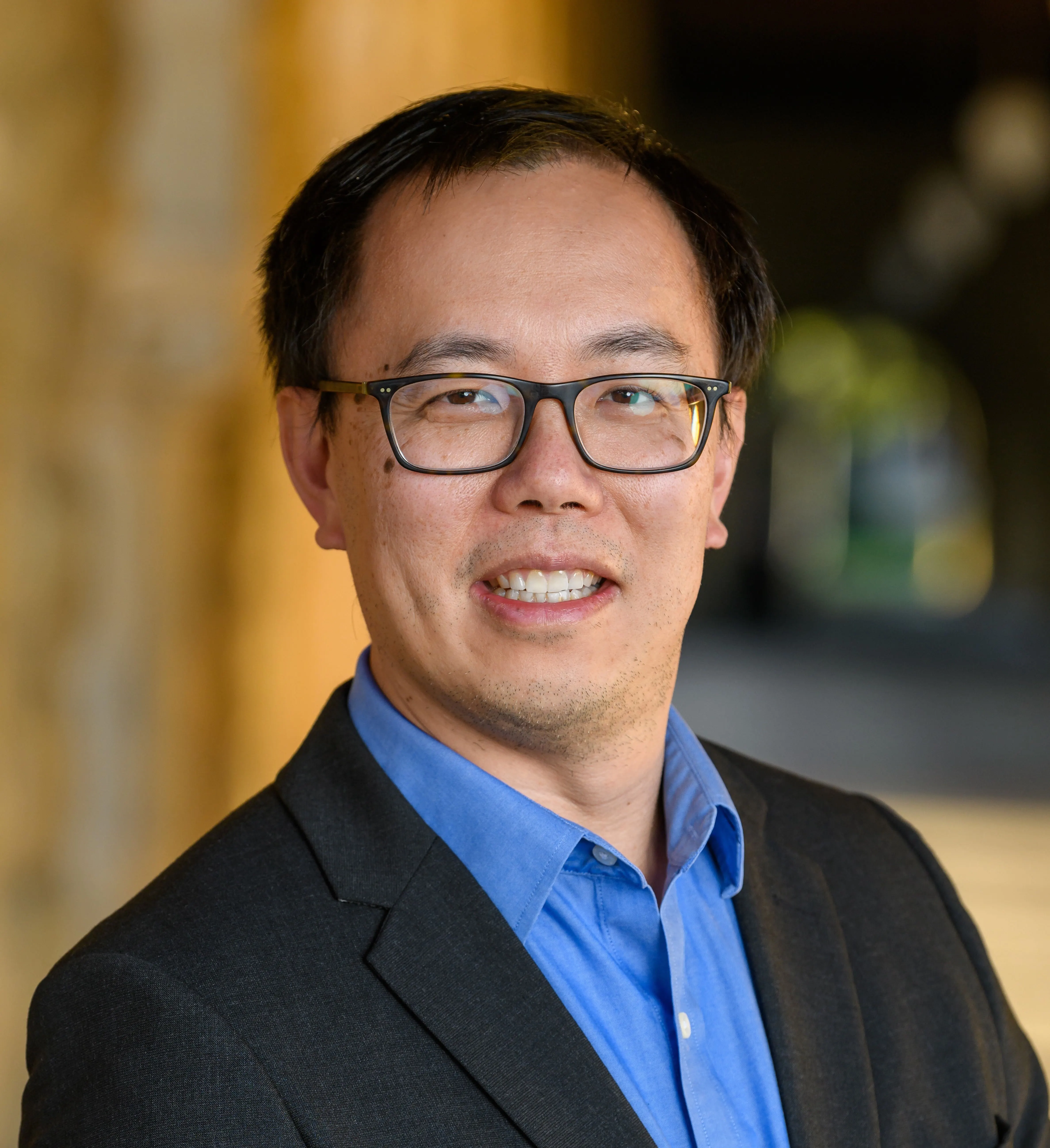Professor of medicine Bryant Lin has been named this year’s keynote speaker for the School of Medicine’s graduation on Wednesday, June 18.
Last spring, Lin was diagnosed with stage four lung cancer, a period he described as “very chaotic.” A nonsmoker himself, Lin called his diagnosis “the irony of all ironies” as one of the research areas of Stanford’s Center for Asian Health Research and Education (CARE), which Lin co-directs, was lung cancer in non-smoking Asians. This fall, Lin taught a course on his battle with the disease.
Lin is the co-founder of CARE, the only medical center at a top US university dedicated to advancing Asian health globally, alongside professor of medicine Latha Palaniapann M.S. ‘01. He is also director of Medical Humanities and Arts for the Center of Biomedical Ethics and served as the medical director of Stanford’s diagnostic clinic, the then-called Consultative Medicine Clinic, from 2013 to 2019.
Lin first came to Stanford in 2005 for postdoctoral research and a biodesign fellowship and joined primary care faculty in Stanford Hospital in 2006. He said he was “very surprised” to be named graduation speaker.
“I had no inkling that I’d be chosen,” Lin told The Daily.
As both a physician and patient, Lin described his journey with cancer as a “unique experience.” “It’s one thing to know theoretically or secondhand what a patient goes through and a very different thing to experience it oneself,” he told The Daily.
Lin’s greater appreciation for the patient experience was part of what inspired him to start his class MED 275: From Diagnosis to Dialogue, a course where Lin shares his journey with lung cancer “from both a patient and a doctor perspective.”
Lloyd Minor, dean of the school of medicine and vice president for medical affairs, selected Lin as the keynote speaker.
“Dr. Bryant Lin embodies the very best of Stanford Medicine — compassion, courage, and a deep commitment to education,” Minor wrote in a statement to The Daily. “His voice is one of extraordinary wisdom and humanity, and I can think of no one more inspiring to address our graduates this year.”
“I think he’s the perfect graduation speaker,” said Isabella Delbakhsh ’28, a former student in Lin’s introductory seminar MED 53Q: Storytelling in Medicine. In the course, students explored different mediums for helping patients tell their stories.
Being able to create his own classes is one reason Lin has enjoyed his time at Stanford. “I know of no other place where a medical school faculty can start a class that is open to all students,” he said.
“He was always positive and relaxed and he felt like a grounding force,” Delbakhsh said. She described Lin as “empathy in a person” and the “best professor” she has ever met at Stanford.
Since his diagnosis, Lin said he reflects more on how to spend his time each day and if the things he is doing are bringing him joy. “I have limited time on this Earth, what should I be doing today? Do you choose to live with happiness and with hope and with dreams, or do you choose to focus on the negative?”
“I think he will influence every class I take and the choices I make — just making sure they’re not wasted,” said Delbakhsh. Thinking of her future graduation, Delbakhsh told The Daily that “it’s just crazy to think that I could graduate and he could not be here.”
When looking to the future for the current graduating class, Lin said that recent political developments are having “a huge impact on our graduating class, and the concern is that because of the environment with funding and the government in the US, people may decide not to go into a career of science.”
Lin stressed the importance of technology and research, crediting it with him being able to talk and teach without coughing or being short of breath. “Without funding, we can’t do any of this research.”
In February, the NIH announced that it will reduce funding for indirect costs in research grants. Stanford expects that this will lead to a $160 million annual loss, posing a major challenge to scientific research at the University.
Lin said the current period of political backlash against scientific research “may be painful” but that people “have to learn to navigate new areas and figure out new sources of funding.” “It may be difficult, but I think we’ll figure out a new way forward… I have great faith in young people,” Lin said.
Delbakhsh, who seeks to become a doctor, said that she is nervous to choose a pre-med path, worrying it might be too rigid. “[Lin] made me feel like what I’m studying and what I’m choosing to do with my life is very fluid; it’s not rigid,” she said.
Speaking of the commencement speech, Lin said “it should be fun” and that he is going to do “some unusual things.”
All in all, Lin said he feels “extraordinarily lucky.”
“I believed before I was sick and I still believe that I am the luckiest man on the face of the Earth,” said Lin. “I keep being lucky [because] Dean Minor and his team were kind enough to pick me as their graduation speaker.”
